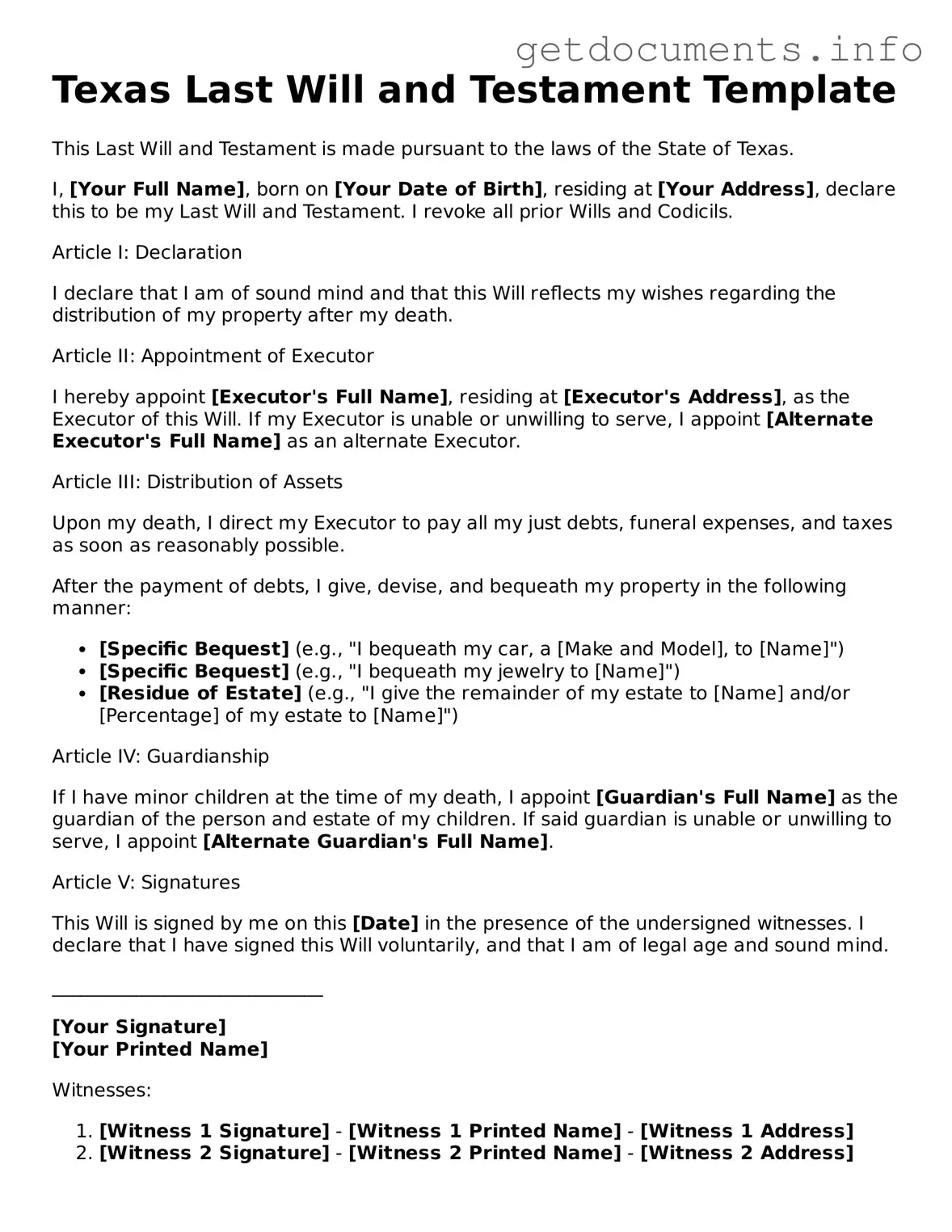Free Last Will and Testament Template for Texas
A Texas Last Will and Testament form is a legal document that outlines how a person's assets and affairs should be handled after their death. This form allows individuals to express their wishes regarding the distribution of property and the care of any dependents. Understanding this document is crucial for ensuring that your intentions are honored, so consider filling out the form by clicking the button below.
Access Last Will and Testament Editor

Free Last Will and Testament Template for Texas
Access Last Will and Testament Editor
Got places to be? Complete the form fast
Fill out Last Will and Testament online and avoid printing or scanning.
Access Last Will and Testament Editor
or
⇩ PDF File
